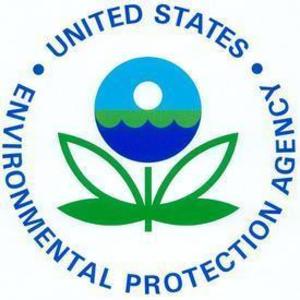EPA clarifies details of temporary enforcement policy




April 3, 2020
BY Erin Krueger
The U.S. EPA sent a letter to members of Congress on April 2 clarifying the temporary enforcement policy the agency announced on March 26 in response to the ongoing COVID-19 pandemic. The letter aims to assure federal lawmakers that the EPA’s enforcement authority and responsibility remains active, according to EPA Administrator Andrew Wheeler.
“EPA’s temporary policy was created in response to inquiries from the states and the regulated community,” said Assistant EPA Administrator Susan Parker Bodine in the letter. “Over the past few weeks, the agency has been inundated with questions from both about how to handle the current extraordinary situation where contractors are not available because of travel restrictions, state and local governments are imposing stay at home orders, and the number of people who have contracted COVID-19 and are in quarantine is rising. EPA developed the temporary policy to allow the agency to prioritize its resources to respond to acute risks and imminent threats, rather than making up front case-by-cast determinations regarding routine monitoring and reporting.”
The letter notes that the EPA is working to ensure that critical services, including access to clean water necessary to fight COVID-19, are not interrupted during the current national emergency.
Advertisement
Advertisement
“To be clear, EPA continues to enforce our nation’s environmental laws,” Bodine wrote. “We will continue to work with federal, state, and tribal partners to ensure that facilities are meeting regulatory requirements, while taking appropriate steps to protect the health of our staff and the public.”
“In this unprecedented time, it is critical for the EPA to prioritize our resources and recognize the current risks facing the American people,” she continued. “Some have argued that the agency should direct resources toward responding to each enforcement discretion request separately. However, this argument ignores the fact that the COVID-19 pandemic is a nationwide phenomenon. Diverting EPA staff time to respond to individual questions about routine monitoring and reporting requirements would hinder EPA’s ability to focus on continued protection of human health and the environment.”
The letter stresses that the temporary policy does not excuse exceedances of pollutant limitations in permits, regulations and statutes due to the COVID-19 pandemic. “EPA expects regulated entities to comply with all obligations and if they do not, the temporary policy says that the agency will consider the pandemic, on a case-by-case basis, when determining an appropriate response,” Bodine wrote. “Further, in cases that may involve acute risks or imminent threats, or failure of pollution control or other equipment that may result in exceedances, EPA’s willingness to provide even that consideration is conditioned on the facility contacting the appropriate EPA region, or authorized state or tribe, to allow regulators to work with that facility to mitigate or eliminate such risks or threats.”
Bodine explains that the EPA expects regulated facilities to comply with regulatory requirements, where reasonably practicable, and return to compliance as quickly as possible once the COVID-19 threat subsidies. The temporary policy also specifies that the EPA expects operators of public water systems to continue normal operations and maintenance during this time, as well as required sampling, to ensure the safety of drinking water supplies, she continued.
Advertisement
Advertisement
The letter also explains that the temporary policy will be lifted as soon as normal operations can resume, which may occur sooner than some locations than others.
Additional information, including a full copy of the letter, is available on the EPA website.
Related Stories
The U.S. Department of Energy Bioenergy Technologies Office (BETO) announced up to $23 million in funding to support research and development (R&D) of domestic chemicals and fuels from biomass and waste resources.
The U.S. DOE has announced its intent to issue funding to support high-impact research and development (R&D) projects in two priority areas: sustainable propane and renewable chemicals and algal system cultivation and preprocessing.
Sens. Sherrod Brown, D-Ohio, and Pete Ricketts, R-Neb., in August introduced the Renewable Chemicals Act, a bill that aims to create a tax credit to support the production of biobased chemicals.
The Chemical Catalysis for Bioenergy Consortium, a consortium of the U.S. DOE’s Bioenergy Technologies Office, has launched an effort that aims to gather community input on the development of new biomass processing facilities.
USDA on March 8 celebrated the second annual National Biobased Products Day, a celebration to raise public awareness of biobased products, their benefits and their contributions to the U.S. economy and rural communities.
Upcoming Events










